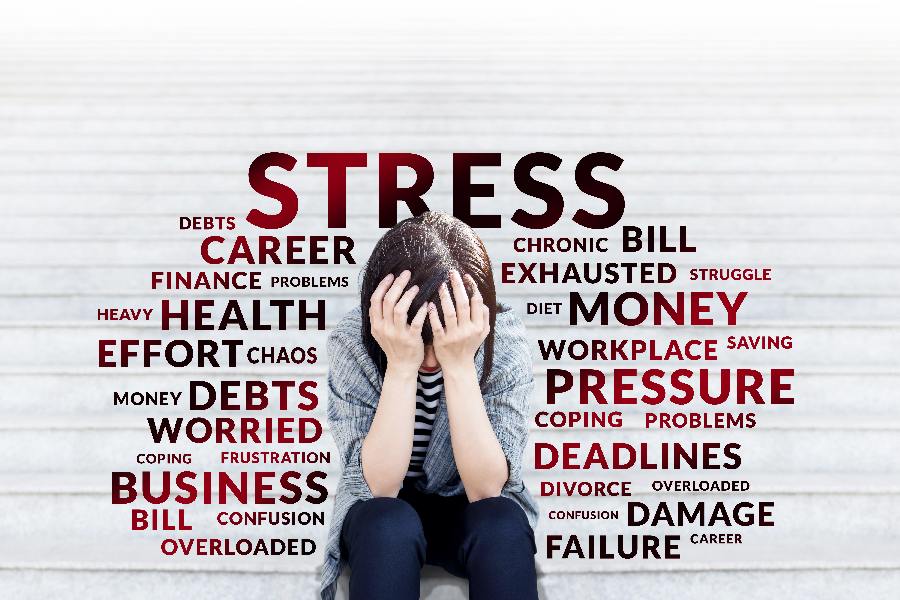
5 Tips for Stress Management
Stress is ubiquitous. The release of stress hormones (like adrenaline and cortisol) helps you cope with immediate challenges.
But when your level of stress becomes chronic or goes beyond what your body can handle, it can compromise your physical, emotional, and mental well-being which makes it harder to handle future stress. Following stress management techniques can help your body train on how you react to friendly and not-so-friendly stressors. Tension tamers can turn off the alarm response and turn on the relaxation response which helps you return to normal functioning following a stressful event.
- Breathe from Your Belly:
Sit in a comfortable position and take a few deep breaths by expanding your belly (rather than lifting your shoulders). Releasing physical tension and increasing oxygen intake calm you quickly—even if stressful events continue. - Spring into Action:
Change your scenery and change your perspective— indoors or outdoors. Walking gets your blood circulating and helps you “blow off” steam so you can return to a new frame of mind. Even a short burst of exercise (like running up several flights of stairs, or several sets of push-ups or abdominal crunches) can reduce stress. Exercise helps deliver more oxygen to your brain and distracts you from stress to give you a fresh perspective on things. Even simple stretching can help bring a little relief. - Take a Break: Whether you listen to music or dance or enjoy a hearty laugh, it is calming for your nerves. Softer music alone or combined with yoga, guided imagery, or soaking in the tub can help relax tense muscles. Upbeat music can help lift your mood or keep you energized. Dancing to your favorite tune or singing along can transport you to a stress-free zone. Move your gaze away from the workstation to visualize yourself in your favorite space, doing your favorite things, or being with your favorite people. Maintaining a sense of humor reminds us that our stressors may not be as menacing as they seem. Purchase or download a laugh track, cartoons, jokes, or your favorite comedy TV show or movies to enjoy when you’re feeling overwhelmed. It renews the spirit and breaks the stress response quickly.
- Journal: If you like to write, journaling clarifies your thoughts and feelings for increased self-knowledge. Putting the experience on paper gets it off your mind and helps you refocus—and teaches you how to cope the next time it happens.
- Power Nap: Mid-day sleep gives you more patience, better reaction time, increased learning, more efficiency, and better health. If you only have 5 minutes to spare, just close your eyes. Even brief rest reduces stress and helps you relax.
Don’t Change Your Life—Change Your Response to Stress
These quick and simple tips make it easy for you to change your response to stressors—and live a more positive, fulfilling life!
For more help with dealing with stress, it is important to understand how your brain is communicating with your body at a deeper level. This can be done by testing neurotransmitters in urine. Neurotransmitter balance can be restored by working with your healthcare provider in a structured systematic fashion that addresses gut health, detoxification, and optimization of hormones.
To learn more on this, you can reach out to Dr. Meena Malhotra, MD , Medical Director at
Heal n Cure Medical Wellness Center
2420 Ravine Way, Suite #400
Glenview, IL 60025.
Call Heal n Cure Medical Wellness Center at 847-686-4444
or schedule a FREE 15-minute Discovery Call.


